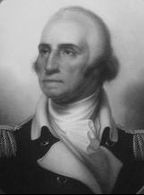Thank you! You have successfully submitted your online application to The George Washington Teacher Institute Residential Programs. Once again, I aspire to be accepted to the Mount Vernon Summer Residency Program. Two years ago, I was an alternate to the program, but was not privileged to attend (as participants did not drop out). If my application is selected I will spend a few days on George Washington's property in Virginia, studying the property and artifacts and contributing to the educational program there - all thanks to scholarship and travel stipends. |
By robbing children of relevant historical discussions, we blur our nation’s founding principles. Yet, tomorrow’s family, community, and nation leaders still enter my classroom deprived of their own history. While they long for stories of our nation’s founding era, history is often relegated to dusty corners. While students hanker to presently apply lessons from history, history too often remains hidden. Education’s shuttering of our founding principles in favor of the three R’s disregards our nation’s future. History is quickly demoted to an ancillary role: we might use history as the text for reading classes, but fail to teach it explicitly.
Thankfully, Missouri’s newest standards push historical context back into elementary schools, allowing me to give muscle to founding documents by inviting George Washington and his contemporaries into my classroom. I must personally meet President Washington, sit with him, and share a meal with him. We should get to know them, mull over their ideas, and appreciate ongoing debate over freedoms and rights. We must grasp the significance of Revolutionary War and the sacrifices of patriots their families. We have a personal, present need to apply such principles in our lives. It is exciting to think that Washington’s wisdom, courage – even his torments and apprehensions – might return to our classrooms. I am thrilled with the idea of reviewing Revolutionary maps and studying primary sources from the those great historical visionaries who resisted oppression, forged a free country, and gifted us with unprecedented rights and freedoms.
My students hunger for lessons and activities about the 18th Century. They salivate with anticipation. As historians, students collaboratively struggle with material and process. They actively participate in the civilized discussions and disagreements we conduct in class. They draw conclusions based on physical and inferential evidence. They are jubilant only when they respectfully dig into difficult topics to successfully unearth innovative solutions. They gather information, learn from failure, and build systems to serve future generations. By identifying mistakes and responses from the past, students equip themselves to face genuine issues and influence the future like George Washington did.
Washington influenced uneasy times. Amidst confusion and extraordinary events, Washington’s strength and demeanor exhibited leadership and decision-making abilities. He weighed risks, led boldly, calmed rooms, and boldly sought civility and decency. I aspire to be that resolute peacekeeper for stakeholders in our school – for my fourth graders and colleagues. When my teacher-peers curiously spy into our window, click on my website, or observe my class directly, they don’t see isolated topics, changing every 20 minutes or breaking on a regular schedule. They find us time traveling – encountering real, stimulating situations and studying artifacts and images.
At day’s end, I enjoy the satisfying fatigue resulting from empowering children with real mettle for success and encouraging educators – through conversations, observations, and formal or electronic presentations – to do likewise. As a professional developer, I thrive when I openly share my experiences and expertise locally and at the state level (hopefully soon including a rich experience at George Washington’s Mount Vernon).








































